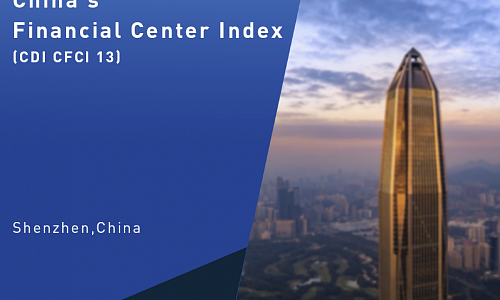
2016 - News
 OBOR Roundtables were held jointly by CDI and The European House-Ambrosetti and The Hellenic Foundation for European & Foreign Policy in Italy and Greece respectively. During the visits in three cities including Milan and Rome in Italy and Athens in Greece from December 4 to 11, 2016, CDI also had roundtable discussions with The Italy-China Foundation, Borsa Italiana, The Italian Banking Association, Athens Exchange Group and Eurobank Ergasias.
OBOR Roundtables were held jointly by CDI and The European House-Ambrosetti and The Hellenic Foundation for European & Foreign Policy in Italy and Greece respectively. During the visits in three cities including Milan and Rome in Italy and Athens in Greece from December 4 to 11, 2016, CDI also had roundtable discussions with The Italy-China Foundation, Borsa Italiana, The Italian Banking Association, Athens Exchange Group and Eurobank Ergasias.
In the discussion on the OBOR with Ambrosetti in Milan on December 5, CDI delegation elaborated on China's opening-up strategy, China's investment in the EU, China's economy, the RMB exchange rate, Shenzhen-Hong Kong Stock Connect, the opening-up of China's capital market and other issues. More than 30 representatives from Italian think tanks and businesses raised questions about the Silk Road Fund and logistic connectivity along the Belt and Road. They showed interest in participating in the OBOR, but they hoped to know more about the Chinese demands, participation channels and cooperation approaches. Therefore, it is imperative for the two parties to enhance the communications on the OBOR.
CDI delegation also met with more than 20 think tank experts, business managers and government officials in the roundtable discussion with The H-ellenic Foundation for European & Foreign Policy in Athens on December 9. It is noted that many Chinese enterprises, such as Huawei, ZTE and Fosun, are now expanding their business network in Greece. For example, China COSCO Shipping Group has acquired 51% of Piraeus Port. It is agreed that Greece has the historically honored ports and and shipbuilding industry which are attractive to foreign investment. In addition, Greece is willing to leverage the OBOR investment opportunities.
During the visits to other institutes, it is also found that experts and business managers from Italy and Greece also paid close attention to the opening-up of China's capital market such as Shanghai-Hong Kong Stock Connect, Shenzhen-Hong Kong Stock Connect.
The activities expanded investment opportunities in the countries along the Belt and Road. Italy has expressed interest in OBOR projects concerning finance and logistics, while Greece is looking forward to introducing Chinese capital to airport, hot spring, telecommunications, retailing, etc. Hence, Chinese enterprises can tap more investment opportunities in the European market.
https://en.cdi.org.cn/component/k2/itemlist/category/40-2016#sigProId3a75be9134
CDI delegation attended the 2016 GRI International Conference which was held from 21 to 22 December 2016 by Gyeonggi Research Institute. Themed on “Human and Locality: Human-friendly Urban and Regional Development”, the conference convened over 60 delegates from China, India, Malaysia, Mongolia, Russia, Vietnam, Britain, and Korea.
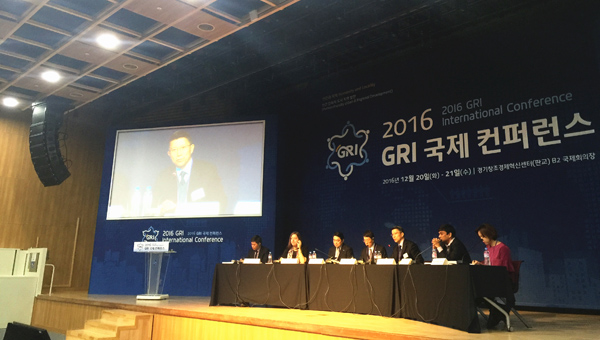
CDI Senior Research Fellow Li Jinkui gave a presentation on “City Village: the Secret of Shenzhen”, emphasizing that the city village in Shenzhen offers a huge low-cost living area that the government can’t offer during the rapid urbanization. As a discussant, Dr. Hu Zhenyu, Director of Sustainable Development and Blue Economy Research Department, gave speeches on precariat employment, youth employment and the cross-border cooperation between Shenzhen and Hong Kong.
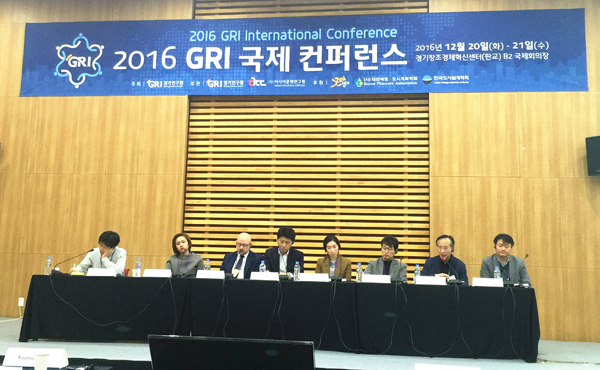
The conference consisted of five sessions of urban and regional development, housing and urban regeneration, migration and mobility in the metropolitan region, employment and community and people. In addition, there were the other three special sessions of immigration and multiculture, border of cooperation and multicultural society of Korea from the view of foreign students.
GRI is the only comprehensive policy research institute established with the contribution of Gyeonggi Province, its 31cities and countries, and local business companies. The purpose of GRI is to enhance the competitive advantage of Gyenoggi Province and improve the residents’ quality of life through policy research and development. GRI develops professional and systematic policy solutions for diverse fields, such as economy, urban and regional planning, transportation, environment, local governance, society and culture.
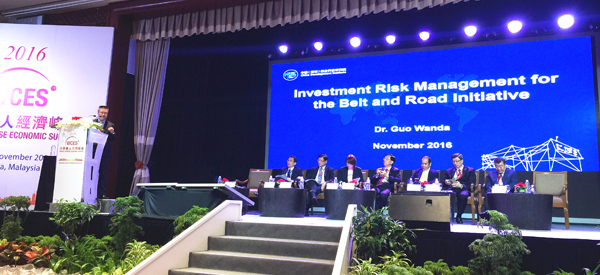
Executive Vice President Dr. Guo Wanda gave a presentation on the investment risk management for “One Belt One Road” initiative (OBOR) during the 8th World Chinese Economic Summit themed on “China–ASEAN: Realizing Opportunities, Strengthening Partnership”, which was held in Malacca, Malaysia from November 16 to 17 2016. With experts from China, Pakistan, Malaysia, Singapore, Thailand, Kuwait, and Britain, the panel had a heated discussion on OBOR new business and investment opportunities and challenges so as to further strengthen China-ASEAN cooperation.
In his speech, Dr. Guo noted that Chinese businesses will be confronted with both opportunities and risks when investing OBOR projects and Chinese enterprises should consider whether the recipient region can benefit from the OBOR investment and use Chinese Diaspora network to reduce the potential risks.
The World Chinese Economic Summit (WCES) is a flagship event created by The Asian Strategy & Leadership Institute (ASLI), which is also one of the biggest global economic forums in Malaysia. Since 2009, CDI has been working as a partner of the event, with its representatives participating in the forum to share their views on Chinese economy. In 2013, CDI was awarded by former Malaysian Prime minister Mahathir Mohamad for its great support to the forum.
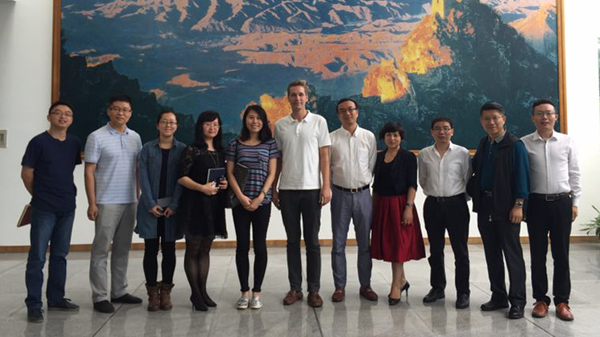
Nicolai Peitersen, author of The Ethical Economy published by the Columbia University Press, advisor and Co-founder of Wikifactory, visited the CDI on Nov. 16, 2016. During the meeting with CDI research fellows, he introduced his "I-Box" innovation industry park in Chengdu, exchanged with views on his book, and shared his opinions about the world economy.
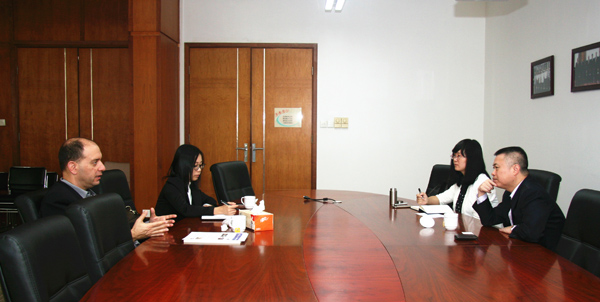
On Nov 4, Amb. Nadav Cohen, the Israeli Consul General in Guangzhou paid his first official visit to CDI. Dr. Guo Wanda, the Executive Vice President, presented a general picture of the economy in China, especially in South China. He emphasized innovation as one of the crucial driving forces in Shenzhen. He also explained the "One Belt One Road" Initiative from economic perspective. Amb. Cohen reviewed the development of hi-tech industry in Israel and its experiences. Both sides agreed on exploring further cooperation in the future.
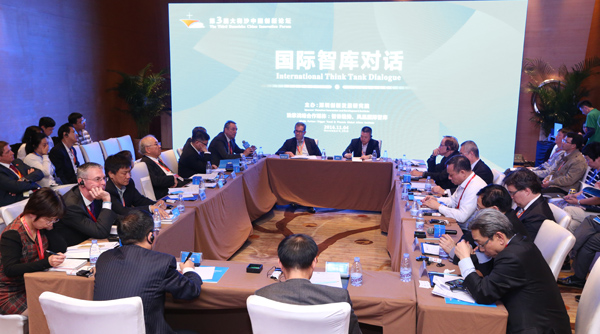
Executive Vice president Dr. Guo Wanda participated in the International Think Tank Dialogue held on Nov. 4th during Dameisha China Innovation Forum. The dialogue is centered on how to enhance the capacity building of think tanks.
Dr. Guo said that as a non-governmental think tank which develops solutions to public policy challenges, CDI is focused on policy-oriented research which can play a bigger role in policy decision-making via efficient information exchange between CDI and government departments. Dr. Guo pointed out that CDI is aimed at being an influential global think tank with its institutional reform.
As a supporter of the forum, CDI invited experts from international think tanks like Brookings Institution, Chatham House, Cato Institute, Milken Institute, East-West Center, Asia Society, German Development Institute, French Institute of International Relations (IFRI), Center for International Public Policy Studies (Japan), etc.
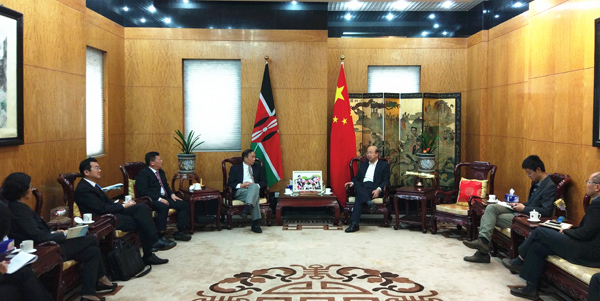
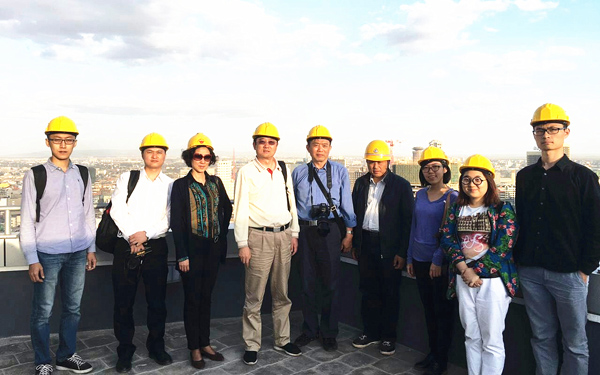
In August 2016, Dr. Qu Jian, Vice President of CDI, led a project team to Kenya for research and investigation on the Kilifi Park and the Bomas Convention and Exhibition Center, which are planned to be built with investment from the Wuyi Group. The delegation attended 13 discussion meetings visited seven federal and local government departments, including the Kenya Investment Authority, the Ministry of Devolution and Planning, the Export Processing Zones Authority and the Kilifi County Government. In addition, the project team also had in-depth discussions with Mr. Liu Xianfa, the Chinese ambassador to Kenya, on such issues as China–Kenya relations and development of Chinese enterprises in Africa.
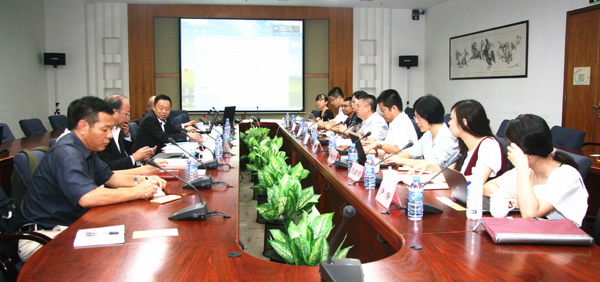
On Aug 22, the Sino-Japan Economic Cooperation Roundtable Dialogue was held at CDI. Mr. Yosuke Tsuyuguchi, Former senior official of the Bank of Japan, Mr. Ohara Atsuji, Associate Professor of International Finance/Development Economics, University of Nagasaki, Mr. Ueshima Kenji, President of China Japan Equity Exchange Co., Ltd, and Mr. Huang Zhongquan, Chairman of Asian Bridge Capital Ltd paid a visit to CDI and held a discussion with CDI research fellows. Dr. Guo Wanda, Executive Vice President, Dr. Liu Guohong, Director of Finance and Modern Service Industry Dept., Mr. Zheng Yujie, Director of Think Tank Research and Information Dept., and 6 other research fellows attended the meeting. The Japanese expert made a thorough analysis on the status quo and prospect of Japanese economic regarding rising exchange rate, low inflation, fiscal and financial policy. The two sides also held a discussion on the possibility of further internationalization of RMB in Japan, and the potentials of Sino-Japan economic cooperation, etc.
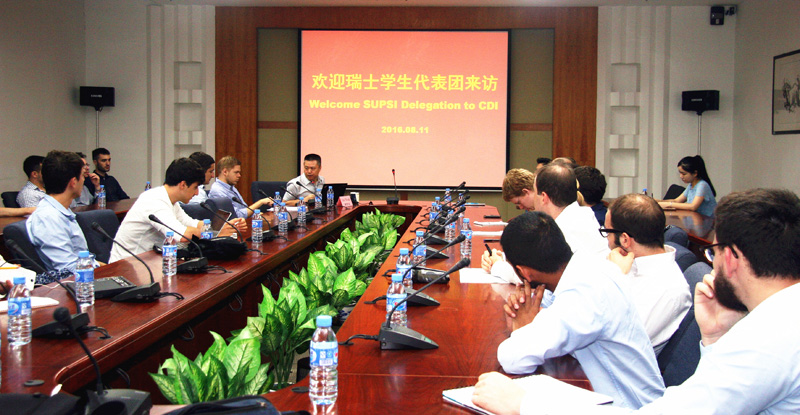
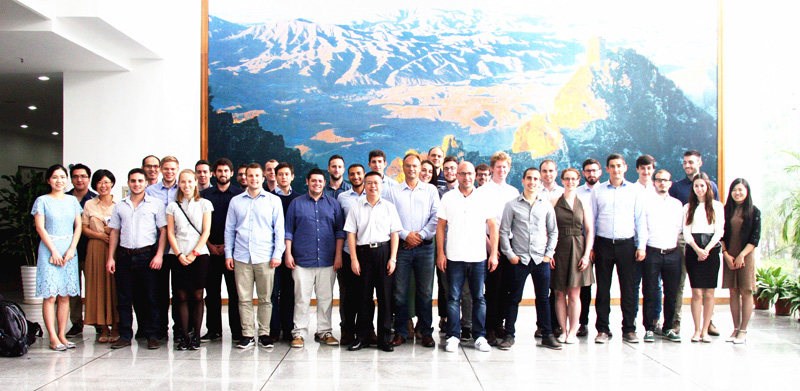
A delegation of 35 students from University of Applied Sciences and Arts of Southern Switzerland (SUPSI) paid a visit to CDI. Dr. Guo Wanda, Executive Vice President of CDI lectured students on “Chinese Economy and Shenzhen Special Economic Zone: the Transformation of China”. The lecture covers four parts: “Chinese Economy in the Past”, “Chinese Economy in the Future”, “Shenzhen:A Special Economic Zone” and “Shenzhen’s Innovation and Its Role in China’s Transformation”. Dr. Guo had an extensive discussion with students on China’s future economic development path and highlighted Shenzhen’s role in Chinese economic transformation in the period of the 13th Five Year Plan. Swiss students actively exchanged views with Dr. Guo.
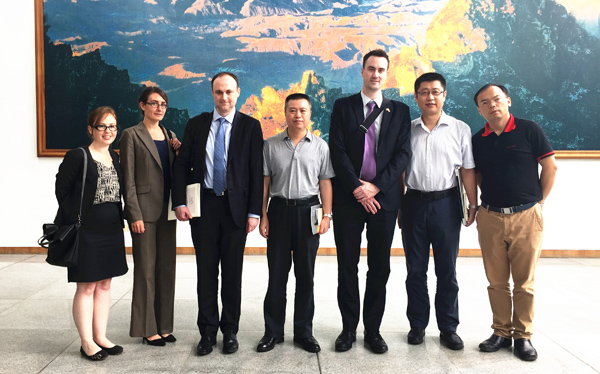
On June 13, Dr. Ivan Roberts, Head of Asian Economies Research Unit, and other economists from Reserve Bank of Australia paid a visit to CDI. Dr. Guo Wanda, Executive Vice President of CDI and Research Fellow Mr. Zheng Yujie and Dr. Zhou Junmin held discussion with RBA delegates on the current situation and future expectation of Shenzhen economy, the supply-side structural reform of Shenzhen, and innovative industries in Shenzhen. To increase the supply of land, education and medical care is the core task of Shenzhen’s supply-side reform, according to CDI research fellows.
More...
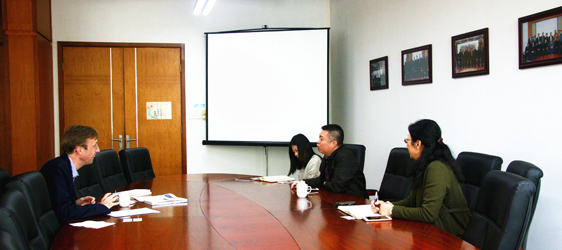
On February 29, 2016, Tim Summers, a senior consulting fellow on Asian programme from Chatham House, visited CDI and conducted research on the integration of Hong Kong and the Pearl River Delta in an interview with Dr. Guo Wanda, Executive Vice President of CDI. Dr. Guo noted that it is inevitable that Hong Kong and the delta region will more closely integrate with each other, or even grow into a metropolitan area, given their close economic relation and frequent people exchange. With commuting convenience, institutional connection, and compatible urban planning, the area has potential for integrated development .
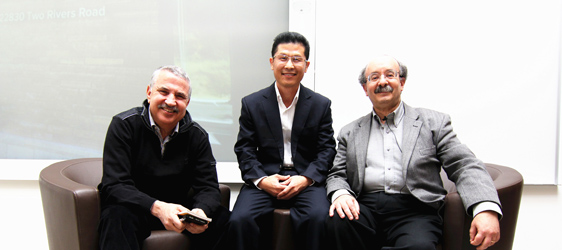
On February 24, 2016, On behalf of CDI, Dr. Wang Guowen, Director of Department of Logistics and Supply Chain Management, attended the completion ceremony of The Innovation Center of Rocky Mountain Institute (RMI), located in Basalt. Dr. Amory B. Lovins, Cofounder and Chief Scientist of RMI, first introduced the deep green building. In the next part, a dialogue centered on new energy was held between Thomas L. Freidman, a writer for the New York Times, and Dr. Lovins. It was emphasized that China’s energy reform during the 13th-Fiver-Year-Plan period is of great importance to the global energy use. RMI, as a thinker and actor in the field of new energy, has proposed commercial solutions to systematically stop using fossil fuels.
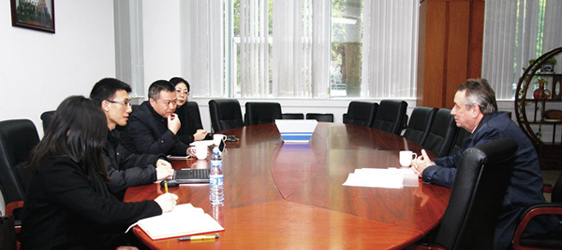
On January 26, 2016, Dr. Peter Wolff, Head of World Economy and Development Financing Department from German Development Institute, paid a visit to CDI, meeting with Executive Vice President Dr. Guo Wanda, International Cooperation Director Ms. Feng Yueqiu, Director of Finance and Modern Industry Department Dr. Liu Guohong and Researcher Yu Peng. The discussion was centered on Shenzhen’s economic development, transformation and upgrading course of the industrial parks in Shenzhen and the prospect of Shenzhen’s financial sector.


On January 7th, 2016, urbanization research team headed by Executive Director Zeng Zhen visited Nomura Research Institute (NRI) and meet with Mr. Hayakawa Yasuhiro, Director of Social Institutions Division, and other five experts. In-depth discussion was held on urban planning, land policy, urban regeneration and industrial parks. Mr. Hayakawa Yasuhiro briefed on the history of industrial parks since 1960s, particularly policies concerning industry and land use to deal with environmental harm and industrial hollowing-out. Mr. Li Jinkui, Mr. Liu Xianfa and other researchers had heated discussion with specialists from NRI on spatial distribution, industrial upgrading, policy design, and coordination mechanism in the course of urban renewal.










